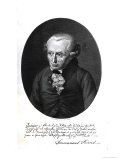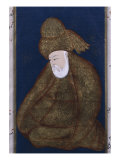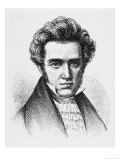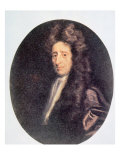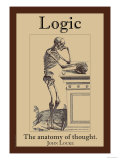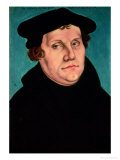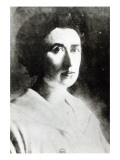|
|
|
|
|
Ivan Illich
b. 9-4-1926; Vienna
d. 12-2-2002; Bremen, Germany
Ivan Illich, philosopher and Roman Catholic priest, was a critic of the institutions of contemporary western culture and their effects on the provenance and practice of education, medicine, work, energy use, and economic development.
Ivan Illich quotes ~
• “At the moment of death I hope to be surprised.”
• “Effective health care depends on self-care; this fact is currently heralded as if it were a discovery.”
• “Modern medicine is a negation of health. It isn't organized to serve human health, but only itself, as an institution. It makes more people sick than it heals.”
• “Healthy people are those who live in healthy homes on a healthy diet; in an environment equally fit for birth, growth work, healing, and dying ... Healthy people need no bureaucratic interference to mate, give birth, share the human condition and die.”
• “The public school has become the established church of secular society.”
• “School is the advertising agency which makes you believe that you need the society as it is.”
• “Most learning is not the result of instruction. It is rather the result of unhampered participation in a meaningful setting. Most people learn best by being “with it,” yet school makes them identify their personal, cognitive growth with elaborate planning and manipulation.”
• “School divides life into two segments, which are increasingly of comparable length. As much as anything else, schooling implies custodial care for persons who are declared undesirable elsewhere by the simple fact that a school has been built to serve them.”
• “In a consumer society there are inevitably two kinds of slaves: the prisoners of addiction and the prisoners of envy.”
• “Homo economicus was surreptitiously taken as the emblem and analogue for all living beings. A mechanistic anthropomorphism has gained currency. Bacteria are imagined to mimic “economic” behavior and to engage in internecine competition for the scarce oxygen available in their environment. A cosmic struggle among ever more complex forms of life has become the anthropic foundational myth of the scientific age.”
• “We must rediscover the distinction between hope and expectation.”
• “The re-establishment of an ecological balance depends on the ability of society to counteract the progressive materialization of values. The ecological balance cannot be re-established unless we recognize again that only persons have ends and only persons can work towards them.”
• “The household has become the place where the consumption of wages takes place.”
• “I was recently told, ‘You're a liar!’ when I said to somebody I walked down the spine of the Andes. Every Spaniard in the sixteenth, seventeenth century did that. The idea that somebody could just walk! He can jog perhaps in the morning, but he can't walk anywhere! The world has become inaccessible because we drive there.”
• “Any industrial product that comes in per capita quanta beyond a given intensity exercises a radical monopoly over the satisfaction of a need.”
• “Leadership does not depend on being right.”
• “Carry a candle in the dark, be a candle in the dark, know that you're a flame in the dark.”
|
|
|
|
Immanuel Kant
b. 4-22-1724; Königsberg, East Prussia
d. 2-12-1804
Kant, one of the most influential thinkers of the late Age of Enlightenment where Reason was considered the primary basis and source of authority, wrote Critique of Pure Reason, a critical investigation of reason itself, Critique of Practical Reason, which concentrates on ethics, and the Critique of Judgement, which investigates aesthetics and teleology.
Kant referred to his non-empiricist critique of rationalist philosophy as his “Copernican revolution”, maintaining that understanding the external world is based both experience and a priori concepts, or ideas independent of experience. Carl Gustav Jung saw the archetypes as a priori patterns of the psyche.
Immanuel Kant quotes ~
• “The active faculty of the human mind ... the capacity of a being to act in conformity with his own representations is what constitutes the life of such a being.”
• “All our knowledge begins with the senses, proceeds then to the understanding, and ends with reason. There is nothing higher than reason.”
• “But although all our knowledge begins with experience, it does not follow that it arises from experience.”
• “He who is cruel to animals becomes hard also in his dealings with men. We can judge the heart of a man by his treatment of animals.”
• “In law a man is guilty when he violates the rights of others. In ethics he is guilty if he only thinks of doing so.”
• “May you live your life as if the maxim of your actions were to become universal law.”
• “Immaturity is the incapacity to use one's intelligence without the guidance of another.”
* The a priori is the unseen basis of the unity of the diverse aspects of our ordinary experience.
• Metaphysics of Morals
|
|
|
|
Prince Peter Kropotkin
b. 12-9-1842; Moscow, Russian Empire
d. 2-5-1921; Soviet Union
Philosopher, economist, writer, scientist, evolutionary theorist, geographer, zoologist, activist, and one of the world's foremost anarcho-communists, Peter Kropotkin was born to a long line of nobility. At the age of 12 he dropped the title, and a few years later became interested in the condition of the peasantry, as his father “owned” 1200 serfs.
Kropotkin came to advocated a communist society free from central government and based on voluntary associations between workers. While living in England he became friends with William Morris and George Bernard Shaw.
Kropotkin quote ~
• “In the animal world we have seen that the vast majority of species live in societies, and that they find in association the best arms for the struggle for life: understood, of course, in its wide Darwinian sense – not as a struggle for the sheer means of existence, but as a struggle against all natural conditions unfavourable to the species. The animal species, in which individual struggle has been reduced to its narrowest limits, and the practice of mutual aid has attained the greatest development, are invariably the most numerous, the most prosperous, and the most open to further progress. The mutual protection which is obtained in this case, the possibility of attaining old age and of accumulating experience, the higher intellectual development, and the further growth of sociable habits, secure the maintenance of the species, its extension, and its further progressive evolution. The unsociable species, on the contrary, are doomed to decay.”
|
|
|
|
Omar Khayyam
b. 5-18-1048; Nishapur, (modern-day Iran)
d. 1131
Omar Khayyám was a Persian poet, mathematician, philosopher and astronomer best remembered in the West for his Rubaiyat. Rubaiyat is a word derived from the Arabic root word for “4”, and meaning a ruba'i or two line stanza with two parts per line.
Here with a Loaf of Bread beneath the Bough,
A Flask of Wine, a Book of Verse - and Thou ...
• The Rubaiyat of Omar Khayyam
|
|
|
|
Søren Kierkegaard
b. 5-5-1813; Copenhagen, Denmark
d. 11-1-1855; Copenhagen
Søren Kierkegaard, philosopher and theologian, is noted for his search for meaning expressd in his ideas of “subjectivity” and “leap of faith”. Kierkegaard, who suffered from melancholia, said, “I saved my life by telling stories.” In his life time Kierkegaard was rideculed for his attacks on the political and materialism of the State Christian Church of Denmark.
FYI - Psychologist Rollo May was influenced by Kierkegaard.
Soren Kierkegaard quotes ~
• “A man who as a physical being is always turned toward the outside, thinking that his happiness lies outside him, finally turns inward and discovers that the source is within him.”
• “Boredom is the root of all evil - the despairing refusal to be oneself.”
• “Purity of heart is to will one thing.”
• “People understand me so poorly that they don't even understand my complaint about them not understanding me.”
• Soren Kierkegaard: A Biography
|
|
|
|
Alain LeRoy Locke
b. 9-13-1885; Pennsylvania
d. 6-9-1954; NYC
Philosopher Alain LeRoy Locke an educator and patron of the arts best known for his writings on and about the Harlem Renaissance. Called by some the “Father of the Harlem Renaissance”, he was a motivating force in keeping the energy and passion of the Movement at the forefront.
Locke was the first African American Rhodes Scholar and chairman of the Howard University philosophy department.
Alain LeRoy Locke quotes ~
• “The pulse of the Negro world has begun to beat in Harlem.”
• “It must be increasingly recognized that the Negro has already made very substantial contributions, not only in his folk-art, music especially, which has always found appreciation, but in larger, though humbler and less acknowledged ways. For generations the Negro has been the peasant matrix of that section of America which has most undervalued him, and here he has contributed not only materially in labor and in social patience, but spiritually as well. The South has unconsciously absorbed the gift of his folk-temperament. In less than half a generation it will be easier to recognize this, but the fact remains that a leaven of humor, sentiment, imagination and tropic nonchalance has gone into the making of the South from a humble, unacknowledged source.” The New Negro, 1920
• “. . . not by way of the forced and worn formula of Romaticism, but throught the closeness of an imagination that has never broken kinship with nature. Art must accept such gifts, and revaluate the giver.”
• The Philosophy of Alain Locke: Harlem Renaissance and Beyond
|
|
|
|
John Locke
b. 8-29-1632; Wrington, Somerset, England
d. 10-28-1704; Essex
John Locke, known as the “Father of Liberalism”, is one of the most influential Enlightenment era philosophers, and his thought is considered intrumental in the founding of the United States nearly a hundred years after his death.
Locke, who was educated as a physician, defined a person as “a thinking intelligent Being, that has reason and reflection, and can consider it self as it self, the same thinking thing in different times and places; which it does only by that consciousness, which is inseparable from thinking, and as it seems to me essential to it”... (Essay on Human Understanding, Book 2, Chapter 27, Section 9).
Locke had to flee to the Netherlands when his writing was considered dangerous. He also encouraged Catherine Trotter Cockburn in her writing.
John Locke quotes ~
• “Every man has a property in his own person. This nobody has a right to, but himself.”
• “Government has no other end, but the preservation of property.”
• “I have always thought the actions of men the best interpreters of their thoughts.”
• Two Treatises of Government and A Letter Concerning Toleration
|
|
|
|
Martin Luther
b. 11-11-1483; Eisleben, Saxony, Holy Roman Empire, Germany
d. 2-18-1546
Martin Luther was a monk and theologian whose invitation “Out of love and zeal for truth and the desire to bring it to light” to publically discuss Ninety-Five Theses of reforming the Catholic Church, changed the course of Western civilization.
Martin Luther quotes ~
• “Be a sinner and sin strongly, but more strongly have faith and rejoice in Christ.”
• “Even if I knew that tomorrow the world would go to pieces, I would still plant my apple tree.”
• “Every man must do two things alone; he must do his own believing and his own dying.”
• Bondage of the Will
|
|
|
|
Lucretius
ca. 99 BC - ca. 55 BC
Roman poet and philosopher Titus Lucretius Carus is only known for his epic philosophical poem on Epicureanism De rerum natura, translated into English as On the Nature of Things or “On the Nature of the Universe”.
|
|
|
|
Rosa Luxemburg
b. 3-5-1871; Vistula Land, Russia
d. 1-15-1919; Berlin, Germany
Marxist theorist, philosopher, economist and revolutionary socialist Rosa Luxemburg was a naturalized German citizen. She, along with Karl Liebknecht, son of Wilhelm, were martyrs for the Marxists after their murders following the Januaraufstand uprising (aka the Spartacist uprising).
|
|
|
previous page | top | next
social studies > list notable philosophers > a | b | c | d | e | f | g | h | I-L | m | n-o-p | q-r | s | t-z < science
|
|
I have searched the web for visual, text, and manipulative curriculum support materials - teaching posters, art prints, maps, charts, calendars, books and educational toys featuring famous people, places and events - to help teachers optimize their valuable time and budget.
Browsing the subject areas at NetPosterWorks.com is a learning experience where educators can plan context rich environments while comparing prices, special discounts, framing options and shipping from educational resources.
Thank you for starting your search for inspirational, motivational, and educational posters and learning materials at NetPosterWorks.com. If you need help please contact us.
|
|
|









